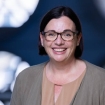{{item.title}}
{{item.text}}

{{item.text}}
Our focus on inclusion unlocks the power and potential of our people

We know that we are at our best when we bring together different perspectives, experiences and skills.
Our network-wide Inclusion First strategy is about fostering a culture where everyone is included, everyone belongs and everyone can thrive—because we believe inclusion is about each of us.
This means we embrace our differences. It means we develop the skills needed to work and lead inclusively. And it means we cultivate a rich breadth of abilities that let us deliver unexpected insights and solve complex challenges facing business and society.
We’ve created a flexible global framework that allows each of our firms to align with our Inclusion First strategy in a way that makes sense for them, taking into consideration local regulations and laws, accounting for demographics and culture and respecting where each firm is on its inclusion journey. This nuanced approach means we can shape the change at both global and local levels.
Our Inclusion First approach helps our people develop the skills needed to value differences and to think, act and lead inclusively. The foundation to allow us to realise the full potential of our people, while fostering a stronger culture of belonging, is by embedding inclusion in our systems and behaviours. This supports our environment where individuality is embraced and valued by our people.
Systems: We’re instituting inclusive processes and policies that support opportunity at all levels and help our people to fulfil their career potential.
Behaviours: In our interactions, we demonstrate our PwC Professional behaviours—foundational guidelines for how we deliver on our purpose, strategy and values that explicitly call for inclusion.
Our Inclusion First approach also focuses on the following additional dimensions of diversity: gender inclusion, disability and neuro inclusion and LGBT+ inclusion. We support our firms as they bring broader dimensions of diversity to life locally.
Discover more about the people and programmes from across our network in the profiles below.
{{item.text}}

{{item.text}}


